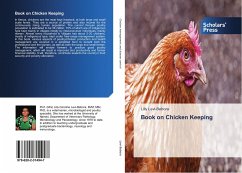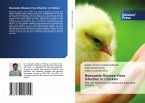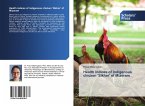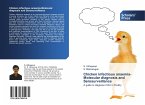In Kenya, chickens are the most kept livestock; at both large and small scale levels. They are a source of protein and also income for the continuously rising human population. The current Kenyan poultry population is estimated to be 36 million, 70% of which are of indigenous type kept mainly in villages mostly by resource-poor individuals, mainly women. Almost every household in villages has about 5-20 chickens, mostly of indigenous type, kept under free-range management system. In this book, various aspects of poultry/chicken production and health management are covered in a simplified form to benefit both the professional and the layman, as well as both the large and small farmer. The information will enable farmers to practice good poultry management, which will result in improved bird productivity and farmer financial stability. It will, therefore, contribute towards the country's food security and poverty alleviation.
Bitte wählen Sie Ihr Anliegen aus.
Rechnungen
Retourenschein anfordern
Bestellstatus
Storno








